World Theatre Map
Open Development Update # 3
Since March 2016, we've been working with web developers Colin Sagan and Raeanne Young of Mosswood Creative to create a new online project on the open-source Meteor platform called The World Theatre Map (and its Spanish-language version Mapa Mundial de Teatro), a user generated directory and real-time map of the global theatre community.
In September 2016, once the site was ready with basic front-end features such as a forms for adding information about people, organizations, and performance events, we put a call out to the HowlRound community for volunteer “beta-testers” to help us test the site and to comment and make suggestions about what they were experiencing. To date we have had six tests with dozens of different volunteers, both in English and in Spanish.
The heart of this first version of the World Theatre Map is about knitting together the global theatre community—connecting theatremakers to each other, to the organizations that support the creation and production of work, and to the work itself through a robust, searchable directory. This search is facilitated by asking users to label the organizations, people, and shows that they add to the directory in various categories: role, type of organization, interests, gender, and cultural identity.
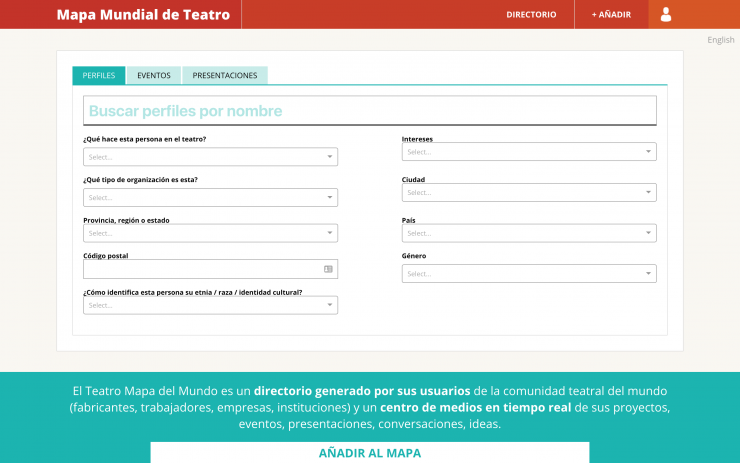
By far the most challenging aspect of this process has been figuring out how to best express classifications and identity labels for people and organizations.
The balancing act here is to find terms and labels that can satisfy the extraordinary diversity of identities, roles, and interests that we know exist in the global theatre community while at the same time creating a pared down number of terms so that the search is not overwhelming, or too dispersed, and therefore less useful for achieving the goal of connecting. We’ve realized that the step before really getting to know one another is to be able to first get visible to each other.
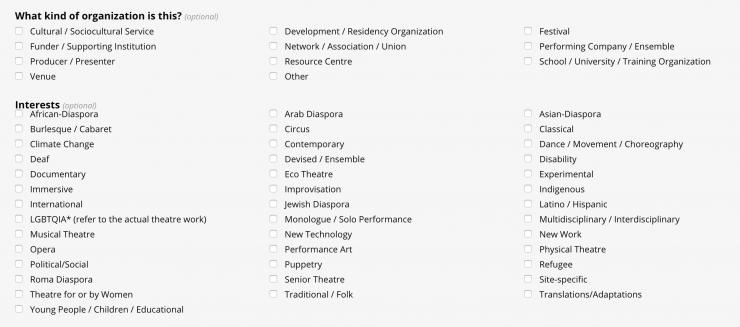
What you will see in mid-January 2017 when we officially launch the Public Beta Version 1 is our first pass at these labels, and categorizations. The site will feature strong feedack mechanisms through which users can express new ideas and suggestions for changes and edits to these taxonomies.
After much feedback and discussion prompted by the beta-testers, we came to a decision about how to ask and collect information about ethnicity/race/cultural identity. This information is optional to complete—as is that relating to gender identity. There are obviously no international norms for categorizing ethnicity/race/cultural identity—and it is fraught and complicated with both oppressive and progressive histories and politics. In fact, it is the one demographic statistic that the United Nations has decided it cannot gather.
What we came to is that users can (optionally) self-identify their ethnicity/race/cultural identity. These user-created terms will then appear as options to select in the directory search. This allows for broad self-identification, and also searchable data terms. In terms of gender, the directory search will use the terms female, male, transgender, and another identity. If someone selects "another identity," they will then be prompted to write in how they self define and this answer will then appear on their profile. In both cases, people can choose more than one label.
It's important to note that since this platform is editable by anyone and anything can be edited—like Wikipedia—we expect many individual and organization profiles to be created by contributors who are not associated with that organization, nor are the person for whom they are creating the profile. This creates an even stronger case to make inputting this data optional so as to not encourage someone guessing another person's gender or ethnicity/race/cultural identity.
So why is gender and ethnicity/race/cultural identity included at all in this directory? The HowlRound community has been very interested in elevating and progressing the conversation about representaton, diversity, inclusion, and social justice. We recognize that this kind of information about our field could help serve that interest. For example, valuable searches in the directory for many people would be: "I am looking for a Female Lighting Designer, in Dublin, interested in Puppetry," or, "I am looking for Funding and Festival organizations, anywhere in Germany, interested in Refugees," or, "I am looking for Events, anywhere in the world, related to Climate Change."
We have just a few more weeks left for finishing up the private beta period. Starting mid- to late January, we will be officially launching the Public Beta Version 1—inviting everyone to jump in and to create this knowledge commons with us. If you have questions or thoughts, please comment below, email [email protected], and follow @HowlRound on Twitter! We'd love to hear from you.


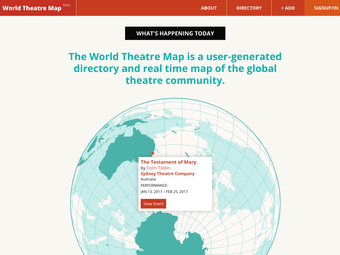

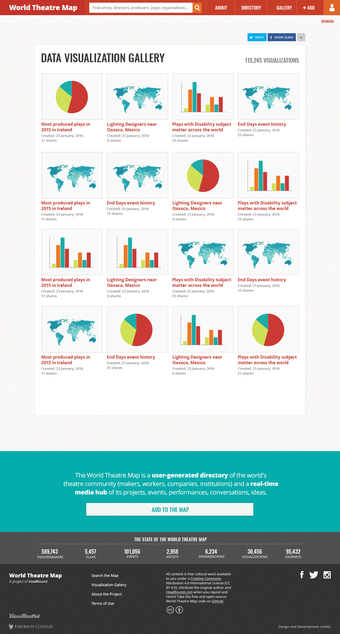
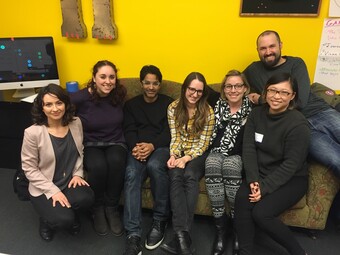
Comments
The article is just the start of the conversation—we want to know what you think about this subject, too! HowlRound is a space for knowledge-sharing, and we welcome spirited, thoughtful, and on-topic dialogue. Find our full comments policy here
Map is hard to use because once you click on a link you cannot back track to the main page
Thanks for the feedback. We have been collecting and responding to other feedback here on the user forum in case you are interested: https://worldtheatremap.use...